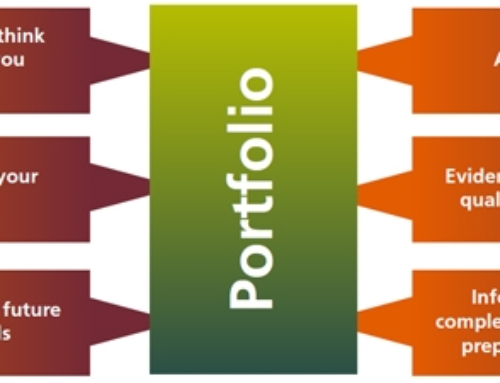You Didn’t Get The Job. Why Not?
You aced the interview, your résumé sings, but in the end, you didn’t get the job. Chances are, you’ll never know why.
It is a painful conundrum of the job search process: Rejected candidates want to understand why they didn’t get hired, but employers, fearing discrimination complaints, keep silent. And those who do speak up offer little more than platitudes.
Without specifics, candidates are left to repeat the same mistakes, while hiring managers complain they’re swamped with applicants who miss the mark.
Why you’ve been rejected
Still reeling from the latest job rejection letter? A bruised ego and a battered self-confidence can take time to heal, but it’s important to discover what went wrong, and how to avoid it next time.
Possible reasons
The most common reason for being turned down is a lack of technical knowledge. To improve this you may simply need to revise answers for technical questions in more detail or you may need to pursue further courses/qualifications.
Another common reason for rejection is interview style. Interviews can make the most confident of us extremely nervous. After all you are being interrogated under a spotlight and the slightest miscommunication or, worse, the mood of the interviewer, can jeopardise your chances. Often it is a psychological thing.
The applicant-tracking systems, which are used by almost every large employer, score candidates based on rough measures like the number of keyword matches between a job description and a résumé. “If you scored 90 out of 100, you might apply again later. But if you scored a 20, you know you applied for the wrong job,” keyword-matching process
Free guide on skill audit and self assessment.
Here are 9 more reasons why people get job rejections.
1- Rubbish CV
If you think you’re just too talented to bother with a CV and there’s no need to spend time updating it, then think again. Sending a potential employer a messy, lazy or just plain illiterate CV is the perfect way to get rejected, even before the interview stage. Writing a decent CV and personal statement can seem a terrible chore, but not getting another rejection will make it all worthwhile, and every hour you spend on it will be repaid in future.
2- Bad hair day
It’s the typical scenario, on the day of your interview your cold starts up again, your nose is running, and on your way to the venue, a lorry splatters your newly dry-cleaned suit with mud. Your confidence is shattered even before you reach the interview, you fluff all the questions. No wonder you didn’t get the job! It may seem hard to do, but the best thing to do is simply shrug it off – the panel will be impressed by how even physical hardship doesn’t faze you. And however grim things seemed, others have had worse experiences.
3- Rotten first impression
You arrive two minutes late and you don’t bother to switch off your phone. By doing this, you’ve already convinced the panel not to hire you within a few minutes of entering the interview room. However hard and well you work at it now, full recovery would be miraculous. If this sounds like your typical interview experience, you could do with checking out some of our tips.
4- Too cool for school (or work)
Just because you’ve seen some of the senior creative on TV without ties, this doesn’t mean the company advocates casual dress, or expects you to turn up to the interview in tatty jeans and a T-shirt. It’s true many jobs don’t have a particular dress code, but when it comes to the interview, don’t take any chances. Do your research, watch, ask people. And if you don’t have the right gear, borrow it.
4- My last job
When you say in your CV that you’ve had this or that experience, be prepared for detailed questioning. Are you really a good team player? Have some examples to show that you are, ready and rehearsed. Too often inexperienced candidates are tempted to exaggerate, and turn that half-day in a TV studio to “work experience in media production”.
5- Oh, I always wanted to work for….whoever you are…
As well as making sure you have a thorough grasp of what the company does and what the job entails, you must also demonstrate you have some knowledge of the profession or industry you’re hoping to work in. And if they do ask you something you have no idea about, it’s better to be honest than to try to blag your way out.
6- Over confident
If the interview starts well and you’re getting exactly the questions you expected, avoid any temptation to become cocky or too familiar. Don’t ask questions until you are invited to ask them (but when they do ask, make sure you have some!) Remember, they are running this interview, not you.
7- There were better candidates
Sometimes you do nothing wrong, and the sad truth is there’s always going to be someone better qualified for the job, or better at giving a first impression.
8- 1 in 10 young job hunters rejected because of social media
Perhaps that photo of you funnelling a beer or scantily clan in your Halloween costume is not be what an employer wants to see. In fact, it’s costing many young people jobs. A new study from On Device Research finds that 1 in 10 young job seekers have lost a potential job because of their social media profiles. In the U.S. alone, the total was 8 percent among those 16 to 24 years old and 5 percent for those 25 to 34 years old.
You’ll Never Know Why!
But when the reasons for a rejection can’t be boiled down to more clear-cut measures like experience or education, “You don’t know how to adjust going forward.”
This can be difficult, but it is essential for your development. You may find it easier to receive if you apply through a head hunter as they usually have long-standing relationships with employers, ensuring that candid feedback is given to them about a candidate post-interview.
You can narrow your search
Be highly selective with where you apply. Don’t be afraid to turn down opportunities pitched to you as perfect by head-hunters and recruitment agencies if you feel they are not right. Where you feel you are suitable, research the role, the company, its culture and the team you will be working with in as much detail as possible to gauge how appropriate you are before accepting an interview. If you are being represented by a head hunter ask them to provide you with as much accurate information as possible and back this up with your own research. It is advisable to read the profiles of those interviewing you on LinkedIn.





